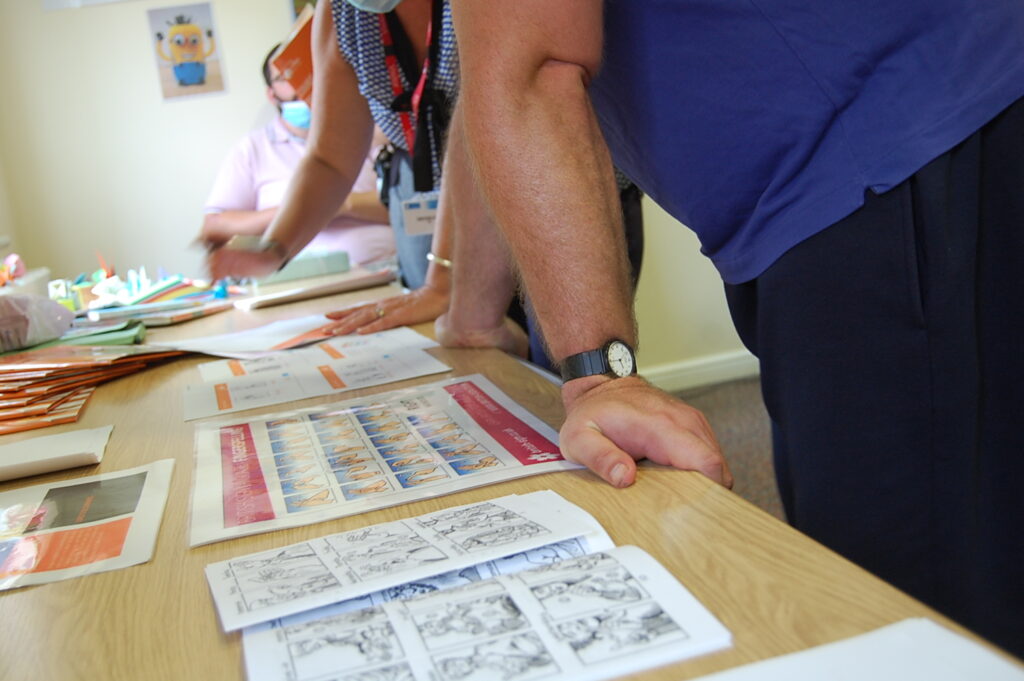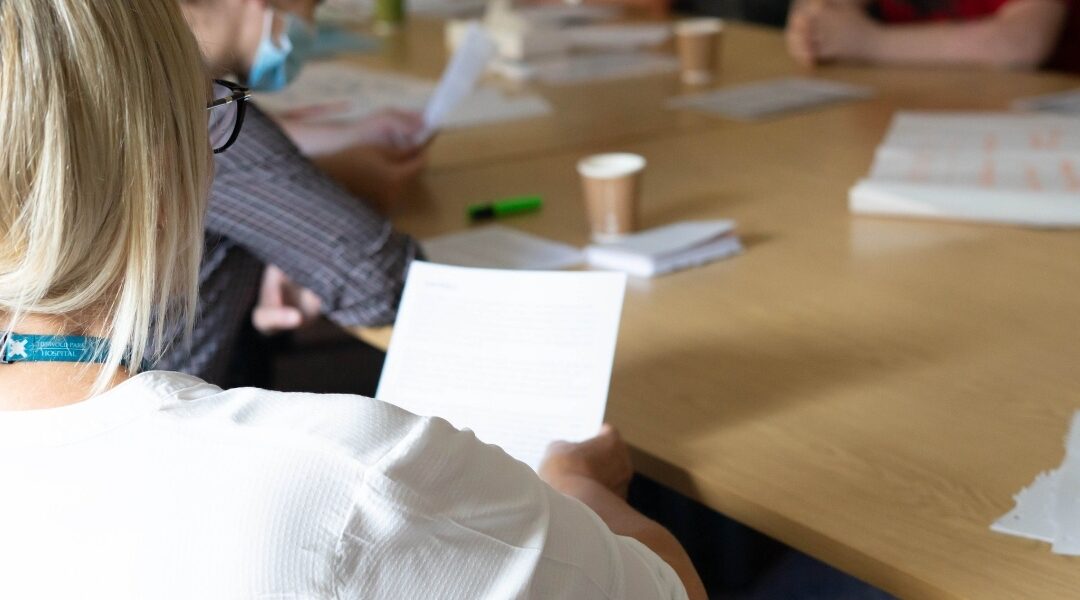Rick Mason, Recovery College Lead, Cheswold Park Hospital, Doncaster.
The last 12 months have seen a lot happen here at Cheswold Park in terms of involvement and co-production and has prompted some reflection on what has been achieved and the resulting benefits. From taking home the Mark Britton Service Users Choice Award at the 2022 National Service User Awards to incredible feedback from our new joiners around the co-produced Reducing Restrictive Practice Workshop that forms part of our induction fortnight, our service users are more involved now than they ever have been. Our Patient Engagement Council is now established and seeing some positive changes throughout the hospital, including improved lines of communication between the senior leadership team and the service users. We even have a group who contribute to the care of service user and staff well-being through the “Positive Affirmation Project”.
Overall, our service users have been at the forefront of a lot of new projects over the last 12 months as well as being involved in service development and making decisions about how the service runs. But this blog isn’t here to brag, to show off about what we have achieved or put the spotlight on us for what our service users have been involved in. It is exploring how these projects make our service users FEEL. There is strong evidence that taking part in co-production, as well as being part of a community of peers, is a positive experience both for people with experience of mental health problems and those involved in mental health commissioning and provision. Co-production contributes to a sense of shared identity and purpose among all involved (Boyle D, Coote A, Sherwood C, Slay J, 2010) and this has been evident from the mood of those involved in the aforementioned projects and their peers on the wards. We have seen a significant increase in the number of service users who feel confident and empowered to speak up about an aspect of their care that they want to challenge or seek more clarity on. We have also seen more service users coming forward to share their lived experience with others, including contributing to staff training and development.
From a service perspective, this makes our jobs infinitely easier. Service users feeling heard and empowered are generally less challenging owing to those commonly perceived “them and us” barriers being broken down. Service users take a sense of pride at being given a voice to discuss their often negative or traumatic historical experiences to improve the skills and knowledge of those who support them on a daily basis. Service users being encouraged to participate in service development also assures them that their voice and opinion does matter, a feeling that has often been absent for most of their life. Having developed an inclusive culture that promotes involvement and co-production wherever possible, we have seen service users progress in their journey through the service with a much more positive outlook, with many seeking out Expert by Experience roles in many different capacities.
Even down to an individual level, we are hearing more service users talking about feeling valued, about feeling heard and about feeling supported. We see service users encouraging their peers to get involved and share their thoughts and experiences, because they are assured that the service values this input. Many wards are generally much more community focused when involvement forms part of the culture. Even down to asking the questions “How should we do this?” or “Please can someone support us with this?” demonstrates the power of service user input in projects and initiatives. It’s easy to forget sometimes that we are only in the hospital for 8-12 hours a day, but for our service users, the hospital is their home. Imagine people coming into YOUR home and making changes and imposing rules and policies without consulting you. Whilst we know and appreciate that some changes have to be made and are non-negotiable in the interest of safety or natural development of the service, and are generally unavoidable, we can still involve service users. We can consider how this change would make our service users feel and open up dialogue about how we can implement this change in the most effective and mutually beneficial way.
Our ultimate goal within services across the country is to rehabilitate our service users to live meaningful and fulfilling lives in the community and involvement and co-production can play a big part in that. Our occupational therapists do an incredible job at equipping people with skills for life, and our psychologists empower service users to use a range of skills to cope with challenging or stressful situations amongst the other therapies and interventions that we provide, and involvement plays a big part in that, and provides service user with the confidence and ability to speak up in an appropriate way and take ownership of their own progression. It provides service users with the necessary social skills to live in the community and have conversations in an appropriate manner. Overall, involvement is a vital part of a service user’s recovery and should be encouraged wherever possible.
Boyle D, Coote A, Sherwood C, Slay J. “Right Here, Right Now: Taking Co-Production into the Mainstream”. London: National Endowment for Science Technology and the Arts; 2010.


